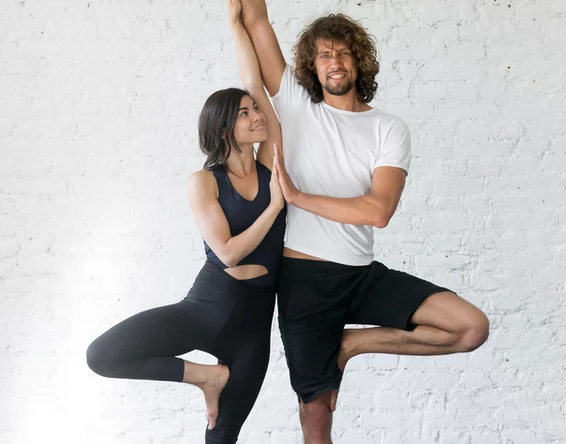Originally Posted Through Psychology Today
We have all met those couples who seem to be as in love as on the day they first met. Sometimes, when they are almost oblivious that they are not alone, you catch them sharing lingering glances, an affectionate touch, or a private joke. How do they do it? The short answer is: together. Research reveals that when couples are motivated to maintain relational quality, shared activities nurture and solidify romantic relationships.
What kind of shared activities? The answer may surprise you. Thankfully, you do not need to sacrifice your identity to immerse yourself in your partner´s passion for quilting or bird-watching. Nor do the two of you need to embark on a daring adventure, seeking to climb Mount Everest or reach the North Pole.
Improving your relationship is much simpler, and easier. It involves sharing time, engaging in activities ranging from exciting to ordinary, with your motivation focused on your relationship, not yourself.
From First Dates to Date Nights: Relational Maintenance
Girme et al. in “´Date nights´ take two” (2014) reported on the effectiveness of shared activities to sustain relationships.[i] Their results indicated that shared activities not only keep relationships alive, they do so beyond what they describe as “threat-based maintenance strategies,” such as accommodation—defined as “the tendency to inhibit negative behaviors and behave constructively in response to negative, hurtful partner behavior.” They found that relationship quality was enhanced by activities that were stress-free and satisfying and increased closeness.
However, there was a caveat. The impact of positive activity on relationship outcomes depended on partner dedication. Positive gains apparently occur only when partners are responsive and receptive to sharing relationships activities.
Not All Activities Are Created Equal
In discussing the results, Girme et al. offer some reasons why relationship activities enhance relational quality. Prior research shows that joint activities that are novel and fun facilitate self-growth and counteract relational habituation. This is consistent with the current study, considering that some of the activities identified by participants included going on vacation, taking dance lessons, and attending concerts.
Other shared activities, however, were less exciting, more routine, and even mundane. They included talking, shopping, working around the house, and watching TV together. As it turned out, however, self-expanding activities did not predict relational closeness or quality. Instead, results showed that a wide range of shared relationship activities promote closeness and relational satisfaction, not just daring ones.
This is good news for couples who are not ready to gear up for their first joint skydive or bungee jump. Self-generated activities apparently enhance relational intimacy regardless of the novelty or thrill. How does this work? Girme et al. cite prior research opining that spending quality time together provides couples with opportunities for self-disclosure as well as for acquiring a deeper understanding of one´s partner, which can build intimacy.
Regarding gender differences, the authors note that men and women may increase intimacy within close relationships in different ways. They give the example of women talking and self-disclosing with same-sex friends, while men opt for participating in activities with other men, such as playing sports together. The researchers suggest that shared activities allow couples to incorporate both types of intimacy-building strategies.
Not all shared activities, however, will automatically improve romantic relationships. As with other types of seemingly positive behavior, motivation matters.
It Takes Two to Tango: Motive Matters
Better stated: It takes two to want to tango together. In order to improve relationships, shared activities cannot be forced or performed under duress. In order to enhance romance, the desire to maintain a relationship must outweigh the desire to please oneself.
In their research on couples´ shared activities, Girme et al. recognized that although a variety of activities can enhance relationships, underlying motivation predicted positive relational impact. Most of the couples in their study engaged in joint activities in pursuit of relational maintenance: to better understand each other or spend more time together.
They note that in contrast, activities motivated by a desire for self-expansion or for a self-oriented reason (such as wanting to engage in an activity merely because it is enjoyable) may reduce the opportunity to achieve relational closeness because the partner is not considered.
In fact, the authors found some evidence that shared activities prompted by self-concerns could even create tension or stress in a relationship, which consequently would be less likely to promote closeness. The impact of activity on relational closeness thus seems to depend on partner participation and responsiveness.
Successful Relationships Involve Both Work and Play
Great relationships are worth the time and effort necessary to sustain them. And they incorporate the gift of shared time in terms of both quantity and quality. It appears that for couples that are motivated to maintain a loving, satisfying union, it is presence, not absence, that makes the heart grow fonder.
Click here to read the full article.


